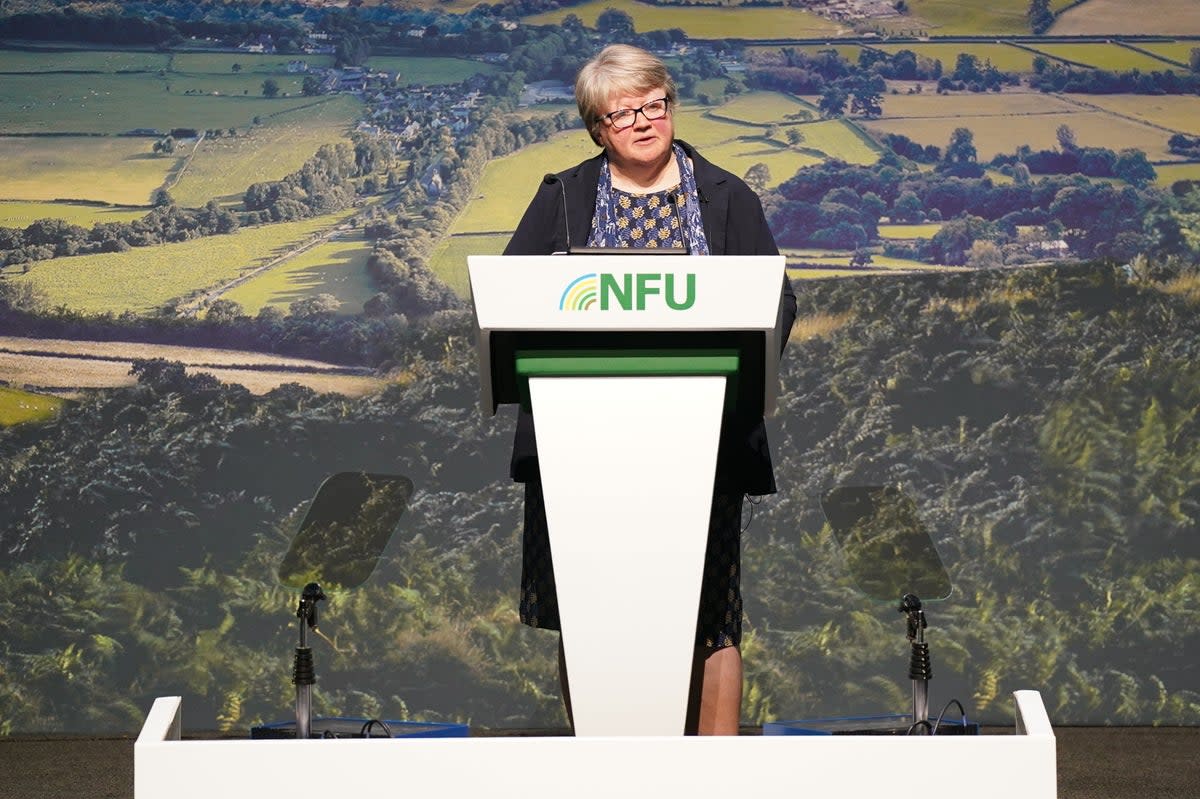Millions of pupils face missing out on fresh fruits and vegetables after the UK’s food shortages hit school lunches.
School meal providers say items such as lettuce, tomatoes and cucumbers are among the items off the menu due to “extreme shortages” and “unviable costs”.
Ministers are so concerned about the problem that they are working with schools to try to minimize the impact. It comes after consumers reported finding fruit and vegetable aisles stripped bare or low in goods, sparking concerns over Britain’s future food security.
In an email sent to primary schools, seen by The Independentsschool meal provider Caterlink, which provides more than a million meals a week to 1,300 schools, said certain fresh goods would not be available for two weeks from 1 March.
As well as salad items, onions, aubergines and fresh peppers are also unavailable due to “poor planting conditions” brought on by last summer’s droughts and recent cold temperatures in the UK and Europe, it said.
“Some growers are seeing 30-40 per cent reductions in usable yield,” the email added.
Neil Fuller, manager director of Caterlink, told The Independents: “We’re experiencing shortages and increased costs of some fresh fruit and vegetables. We continue to ensure all schools have access to fruit and vegetables as part of a balanced menu option.”
Sodexo, which caters for 500 primary and secondary schools across the UK and Ireland, said they had been forced to adjust menus by using frozen and tinned fruit and vegetables.
Pointing to energy prices, Steven Hawkins, managing director for schools, said: “Like many UK supermarkets and food service providers, we are also currently experiencing shortages of some fruit and vegetable items, particularly tomatoes and cucumbers, due to grocers struggling to afford to heat their greenhouses because of increased energy prices.”

One catering company added that prices for salad items had risen by 50 per cent above the seasonal average in some cases.
A range of issues has led to shortages of fruit and vegetables, including a combination of extreme weather and transport problems in the UK, Africa and Europe.
In winter, the UK imports around 95 per cent of its tomatoes and 90 per cent of its lettuces, mostly from Spain and north Africa. Growers and suppliers in Morocco have faced cold weather, heavy rain, flooding and canceled ferries – all of which have reduced the amount of fruit and veg reaching Britain. One company said rising fuel costs and new restrictions on heating greenhouses in Holland had also hit the country’s yield of tomatoes and cucumbers.
Meanwhile, UK growers say that because of higher electricity prices, they planted produce later this year to reduce their energy consumption in greenhouses.
They are also blamed for a combination of rising transportation costs following fuel price hikes and inflation pushing up prices for seeds, fertilizer and feed. The costs of checking seeds entering the UK for viruses have also risen, while the heatwave disrupted the cycle of planting and harvesting of crops such as lettuce.
Charity School Food Matters, which campaigns to improve access to healthy food, said that the government must do all it can to ensure that children’s health is not affected by the shortage.
Stephanie Slater, founder and chief executive, said: “For many children, the school provides the only hot meal of the day and catering teams across the country are working tirelessly to give them the nutritious meal they need to thrive.
“The government must do everything it can to ensure schools are able to deliver hot and healthy meals. Our children’s health should be a priority, and we urge the government to work harder with caterers and suppliers to secure the resilience of the school food system.”
Geoff Barton, general secretary of the Association of School and College Leaders, said that the supply chain problems and rising costs faced by school caterers “serves to jeopardize the variety and quality of food available to pupils”.
He said the shortages were particularly concerning for children on free school meals, whose families relied on them being able to get a healthy meal at school.

James Bowen, director of policy for school leaders’ union NAHT, said they hoped the shortages would only be temporary.
“These are economic and global factors outside schools’ control, and they are affecting the whole county,” he said.
“There may well be an impact experienced by pupils in some schools. This is disappointing and frustrating as the importance of healthy, nutritious food and a balanced diet cannot be overstated.”
Brad Pearce, chair of LACA, the industry body representing school caterers, said some members had been hit by shortages, but that the supply should improve over the coming weeks.
Shadow minister for schools Stephen Morgan said: “These food shortages are the result of the government’s indifference and dithering. In the midst of a cost of living crisis where so many families are struggling, ministers have allowed these shortages to now hit schools and our children.”
Liberal Democrat education spokesperson Munria Wilson said: “The shortage of fruit and veg is putting our children’s right to healthy school food at risk. Yet the environment secretary’s solution would just be to give them all a plate of turnips.
“This is no longer one department’s problem. We need government and industry round the table at a Cobra meeting, not empty supermarket shelves and disappointed children.”
A government spokesperson said: “We understand public concerns around the supply of fresh vegetables, but the UK has a highly resilient food supply chain and is well equipped to deal with disruption.
“We’re working with schools and suppliers to manage any impact on school food and to make sure children continue to receive a nutritious and healthy meal.”

